Dem Presidential Power Rankings: Two Years Too Early
Your most common question, answered — and more.
Folks, it is way, way too early to think about the 2028 presidential election.
We have over a year until the midterms, when Dems have a shot to take back the House (solid odds) and the Senate (long odds), and assert a baseline level of oversight and veto power in Washington.
But the question Russ Belt readers (“Belters”) ask me by far most often? Who the hell is going to lead the floundering, leaderless Democrats? So the Belt delivers.
Why Do A Power Ranking?
This post overviews the candidates and political “lanes” I see emerging post-election, and ranks potential candidates on their odds to win the Dem nomination. Yes, I’ll be wrong. But along the way we’ll have some fun and (the secret point) I’ll share some takes on the political moment ahead.
Isn’t this just fantasy sports for politics? Yes. But also the moral importance of winning elections, and exploring how they’re won, has always been core to this blog—per a few years back:
“No party is perfect. But extremely close elections in my lifetime have led to everything from a horrific war in Iraq to the federal right to abortion overturned thanks to less than 100,000 carefully placed votes.”
Don’t we have other bigger things to worry about, including whether we’ll have free and fair elections going forward? Agreed. And we can cover that when specifics become clearer; I’m sure you can’t wait.
Ranking vs. Wish-Casting
This is an analysis and prediction post, not a declaration of what I want to happen. The goal is to give my clearest-eyed take on how the next few years might play out electorally—as opposed to converting you to causes or candidates.
I’ll do my best to avoid “the pundit’s fallacy”—the belief that what a politician needs to do to improve their political standing is… exactly what the pundit personally wants to happen. For example, a political pundit whose vegan might deeply believe politicians should support lab-grown meat (fair), but they shouldn’t therefore assume their cause has broad national appeal. Even vegan Sen. Cory Booker would agree.
Full disclosure: this ranking is a format I’m stealing from a blog called Ettingermentum. I like the concept, but don’t agree with all his takes, so I decided to try my own.
THE LANES
Political observers often talk about “lanes,” shorthand for what kind of voter a candidate is going after: left, liberal, moderate, etc.
The size and makeup of these lanes isn’t set in stone. Voters, especially low engagement and swing voters, are usually “cross-pressured”—or hold conflicting arrays of associations and beliefs that turn them on or off to certain policies or politicians. (Imagine a woman in suburban Iowa: she’s white, a college graduate, a unionized school nurse, mother of four, frequent church-goer, married to a police officer, and has a sick parent on Medicare—how’s she voting?)
But generally speaking, I think there are three core lanes going into the next presidential:
The Left — We’ll start with the left, as ever since 2016 many of the other lanes have, at some level, defined themselves in contrast to it. Bernie Sanders’ surprisingly strong primary run again Hillary Clinton in 2016 brought the modern left out of the political wilderness and turned it into a formidable movement and sizable minority within the Dem party.
This lane is defined by both economic populism and culturally progressive positions, pushing issues like inequality and corporate power into the national conversation. Many forget Bernie’s politics heading into 2016 were harder to pin down: maniacally focused on economic fairness while skeptical of immigration, not very anti-gun, and hesitant to back racial reparations. Since 2020, the senator from Vermont has moved more consistently left, aligning more neatly on cultural issues with younger, online, city-based voters, and positioning blue-city Dems like AOC and the Squad as his political heirs. More on AOC soon.
The Libs — This large, ideologically squishy lane includes everyone from Obama (center-lib) to Buttigieg (flexible-lib) to Elizabeth Warren and Tim Walz (left-lib). Over the past decade, most prominent politicians in this group have been pulled left on both economics and culture by Bernie’s movement and by their large anti-Trump base: highly engaged, middle-aged, often MSNBC-watching, small-dollar-donating, mostly college-educated Dem diehards.
Many of these candidates are coalition-minded, and try to bridge the wings of the party, or at least speak fluently to both. But this broad lane is also deeply tied to the damaged Dem “establishment” brand, stretching from Hillary to Biden to Harris. I’d argue NYC Mayoral loser Andrew Cuomo, openly antagonistic to his own party while Governor, belongs more in the next lane.
The Moderates — “Moderates” don’t necessarily represent the center of the country (many swing voters are cross-pressured, with views all over the map), nor are they necessarily moderate in vibe or temperament. Rather, this is lazy but helpful shorthand for Dem pols who are deliberately “non-conforming” from the above lanes. Some define themselves wholly in opposition to the left and/or liberals, while others take narrower contrarian stances to acquire the highly useful “moderate” label from the media.
Why get the moderate label? There are a lot of voters in this lane, including many who are low-trust, less culturally progressive, or ideologically unaligned. More Dem voters self-identify as either “moderate” or “conservative” than “liberal,” although the words of course mean different things to different people. These numbers are notably high among Black voters, who make up a whopping 1 in 4 Dem primary voters, and an outright majority in key early state South Carolina.
The Wildcards (Bonus Lane) — Celebrities and other outsider types rarely do well in the Dem party, which is full of primary voters who rank things like “experience” very high. That doesn’t stop clickbait-y posts like this from floating The Rock, Mark Cuban, or Jon Stewart every four years.
While these lanes often overlap, and their size and influence shifts around with events, I think they’re a useful context for:
THE RANKINGS
Tier 1 — Most Likely To Be A Finalist (Say, Top Two)
5 - Josh Shapiro, Governor of Pennsylvania.
On paper, Josh Shapiro is perhaps the individual best positioned to win the nomination: big swing state governor, a talented talker with an affable “guy’s guy” suburban dad vibe, who has long positioned himself as a middle-of-the-road liberal. He has an impressive electoral track record in must-win Pennsylvania, and frankly dodged a bullet by not being named Harris’ running mate and then losing on the national stage.
Can he go all the way? He’s not particularly tested in terms of media or social media at the national level, and it’s unclear he can generate any organic momentum with voters. Can he be interesting, say, across a long podcast? Maybe. The guy also sounds eerily like Obama—a pro or con depending on who you ask.
But Shapiro’s lane is still TBD. During the Harris VP search, he came under sharp criticism from parts of the online left, largely due to his vocal support for Israel and condemnation of pro-Palestine campus protests. That attention could push him, intentionally or not, into a more explicitly anti-left lane. That would be a gamble, given the size and energy of the crowded but still potent coalitional liberal lane.
4 - Alexandria Ocasio-Cortez, Congresswoman from New York.
Is AOC for Prez a pipe dream of the left? Four reasons why you might take AOC ’28 seriously:
First, she’s arguably the most famous Dem who’s never run for president, with sky-high name recognition built over seven years of nonstop national and social media presence. Second, with Bernie turning 87 in 2028, the left lane is wide open. His popularity may not be replicable, but he won roughly 1 in 4 primary votes in 2020, plus key states Nevada and California outright, while demonstrating real strength with two now-Dem-fleeing groups: young and Hispanic voters. Third, the first credible 2028 poll released a couple weeks ago had her fourth. Fourth, both left and liberal Dems are mad as hell, and AOC channels that. She’d bring big grassroots energy into the race: from her huge “Fight the Oligarchy” rallies with Bernie this winter to her direct, authentic public persona—whether you agree with her or not, it’s clear she says what she means, as even Trump-endorsing comedian Andrew Schulz just noted.
Could she win the nomination? Personally, I’m skeptical. Polls have often shown a gap between her name recognition and favorability, especially among older and more moderate Dems. She’s taken bold, often polarizing stances over the years, and there’s a ton of tape that opponents, likely backed by deep-pocketed donors, would use against her.
Will she run for Senate instead, challenging Chuck Schumer? Probably more likely. But she’ll face real pressure to fill the post-Bernie presidential vacuum on the left. If not her, who does? Zohran Mamdani was born in Uganda and thus ineligible. Maybe another Squad member, or Rep. Ro Khanna? I actually think someone like United Auto Workers union leader Shawn Fain is more likely to carry the banner should AOC hold off.
3 - Gavin Newsom, Governor of California.
Frankly, until this summer I would not have ranked Newsom this high. He’s from California, which carries baggage nationally. He often comes off slick and overly produced, like a politician out of a 90’s movie. He’s struggled to pick a lane, going from full-throated defense of Biden’s record in 2024, to welcoming hard-right figures onto his podcast and barely pushing back.
Then came Trump’s ICE raids in California, and the national spotlight swung back to Newsom. And then you remember: he is a fiery debater who loves a fight, and is as confident and stage-ready as anyone out there. Dem voters are mad, and they want a fighter in their corner who seems like they can win. Newsom checks many of those boxes.
He also may have a surprising inroad with Black voters. In a recent poll, he only trails Harris, and very narrowly Bernie, with this key demo. Now supposed kingmaker Rep. Jim Clyburn is hosting Newsom on a tour of key primary state South Carolina, which helped deliver Biden the 2020 nomination. There’s an old saying: “Republican voters fall in line, Democratic voters fall in love”. I don’t think voters will fall in love with Newsom. But they might pick him anyway.
2 - Pete Buttigieg, Former Secretary of Transportation.
I can feel it. You’re mad, or skeptical, or both. You don’t like Mayor Pete, and/or you don’t think he can win. As the mayor of Indiana’s fourth-largest city, he came out of nowhere in 2020 to effectively tie Bernie in the Iowa caucus, and then stepped aside to help Biden clinch the nomination. Maybe you didn’t like that. I hear you. But let’s take stock of his actual strengths and weaknesses.
Three reasons to believe: First, the polls. Pete is currently leading the field in the most credible poll. Another poll has him tied for first and, importantly, leading handily among self-identified liberals, the large normie “bridge” lane where most nominees emerge from. It’s early, but that’s a solid starting point for a former Transportation Secretary.
Second, and relatedly, Pete has single-handedly created more viral moments than the entire Dem field since he ran five years ago. He emerged in 2019 with a “go anywhere” media strategy, and he’s still doing it: from Fox News to long-form “manosphere” podcasts, Pete not only holds his own better than any Dem, but often paints a positive vision for what Dems proactively stand for—rare in the era of Trump. For Dem voters “fighting the last war” by trying to make up for Harris’ weakness in media, perhaps rightly so, Pete is a natural pick.
Third, while he’s sometimes portrayed as a boring corporate “plant” lacking grassroots energy, that’s not what we saw in 2020. In Iowa, he actually performed strongest among first-time caucus-goers, and did well with voters under 45, signaling some organic momentum despite entering a crowded field with no name recognition or funds. And his 2020 stances weren’t fully predictable: he was first out the gate with ideas about adding states and expanding the Supreme Court.
On the flipside, the 2028 field will have a bunch of young-ish candidates, so we’ll see if that advantage holds. Pete is viewed with deep skepticism by the left, and is also closely tied to the unpopular Biden Admin, although he did take the Transportation Dept. in a more progressive, anti-monopoly direction than many realize. Most startling for Pete stans is his recent zero percent poll result with Black voters, even as he placed first overall. And yes, he can talk, but victory-hungry primary voters may note that America has never elected a gay president, and nor has the nation always favored candidates who read as slightly nerdy. This leaves our top slot:
1 - Jon Ossoff, Senator from Georgia.
Do you yearn for a new JFK? A young Dem who seems patriotic, and potentially even cool, in the way Obama and Clinton were? Do you want to “fall in love, not in line?”
I’m betting a lot of Dem primary voters do. And all eyes are about to turn to Jon Ossoff, as he defends his Georgian Senate seat in what should be the highest-profile race in the nation. Yes, Ossoff might be another Beto, with more hype than delivery. He’d be age 41 on Election Day and is still untested on the national stage. His public persona is a little flat, a little serious. But he’s confident, he can land a punch, and has consistently run on a powerful theme that resonates across the party: fighting corruption.
He doesn’t inspire intense loyalty yet, but he also turns very few people off. He’s done well with the racially and ideologically diverse voters of Georgia. And in a party desperate for generational change, some predict this combo of competent, cool, and importantly, new, could be a real asset.
A successful Senate re‑election will mean liberal voters, donors, and the media will urge Ossoff to throw his hat into the ring, even if it means giving up that Senate seat. And I think there’s a real chance he does it and catches fire.
In Tier 2 — Longer Odds, But Could Compete
These next five have the electoral track record, bio, and/or fundraising capabilities to be contenders, but would need a real spark of momentum to get there.
6 - JB Pritzker — Governor of Illinois.
Another blue state governor, Pritzker is a longtime donor (a billionaire heir to the Hyatt fortune) turned politician who has given some strong speeches. He could come out the gate self-funding online and TV ad spend to get his name recognition way up. And he’s been among the boldest elected officials to verbally spar with Trump, calling him an authoritarian; this could appeal to angry primary voters and help him leapfrog more careful politicians ranked higher here.
7 - Ruben Gallego, Senator from Arizona.
Ruben Gallego is a Russ Belt favorite: he has been mentioned on this blog for years because he’s a pro at delivering messages that resonate with voters across the ideological and engagement spectrum (he’s the Big Ass Truck guy). He just won a swing state that same year Trump carried it, and is visiting Iowa this summer, a clear sign he’s going to throw his hat in the 2028 ring. Like many on this list, he’s fairly unknown nationally, but I’ve long been a fan and think he could make things interesting.
8 - Gretchen Whitmer, Governor of Michigan.
Gretchen Whitmer was perfectly positioned to win the 2024 nomination had there been a full open primary. She has a strong electoral track record in a key swing state, performed well in the media, and many noted that a woman taking the mantle rather than Harris would have blunted any concerns of sexism. However, her moment seems to have passed. She’s had a few awkward, perhaps accidental photo ops with Trump, who asked her up to speak at a military event they were both attending. This pic of her hiding her face in Trump’s White House doesn’t help either; she was there to push for resources related to the Great Lakes. Anyways, you never know given her near-frontrunner status just one year ago but…you sort of know.
9 - Wes Moore, Governor of Maryland.
A popular but nationally unknown blue state governor who’s a veteran, D1 college football player, and Rhodes Scholar. He’s likely to run, and frankly could end up on the ticket should one of the many eager white guys (see above) land the nomination. But until he gets more national exposure, I don’t think he can be ranked higher.
10 - Kamala Harris, Former Senator from California.
Not much to say that I haven’t already said, except that Kamala Harris has kept a surprisingly low profile post-election. She may lead some polls due to name recognition and lingering excitement—but so did Al Gore the year after his 2000 loss, and John Kerry after his 2004 loss. That’ll fade, and I don’t see many primary voters signing on for take two. That being said, her strength in the polls warrants a top ten mention.
On The Bubble
I’d put a few names “on the bubble”: Andy Beshear, Tim Walz, Cory Booker, Chris Murphy, and Raphael Warnock come to mind as potential challengers who could enter this list. Celebrities like Mark Cuban, Jon Stewart, and Stephen A. Smith are fun to discuss but, again, I’m skeptical Dems will suddenly get an appetite for this type of candidate, so I’ll leave that for another time.
Thanks for reading! Hit me with a “Right as always” or a “Wow, way off” if you made it this far, always love a reply.




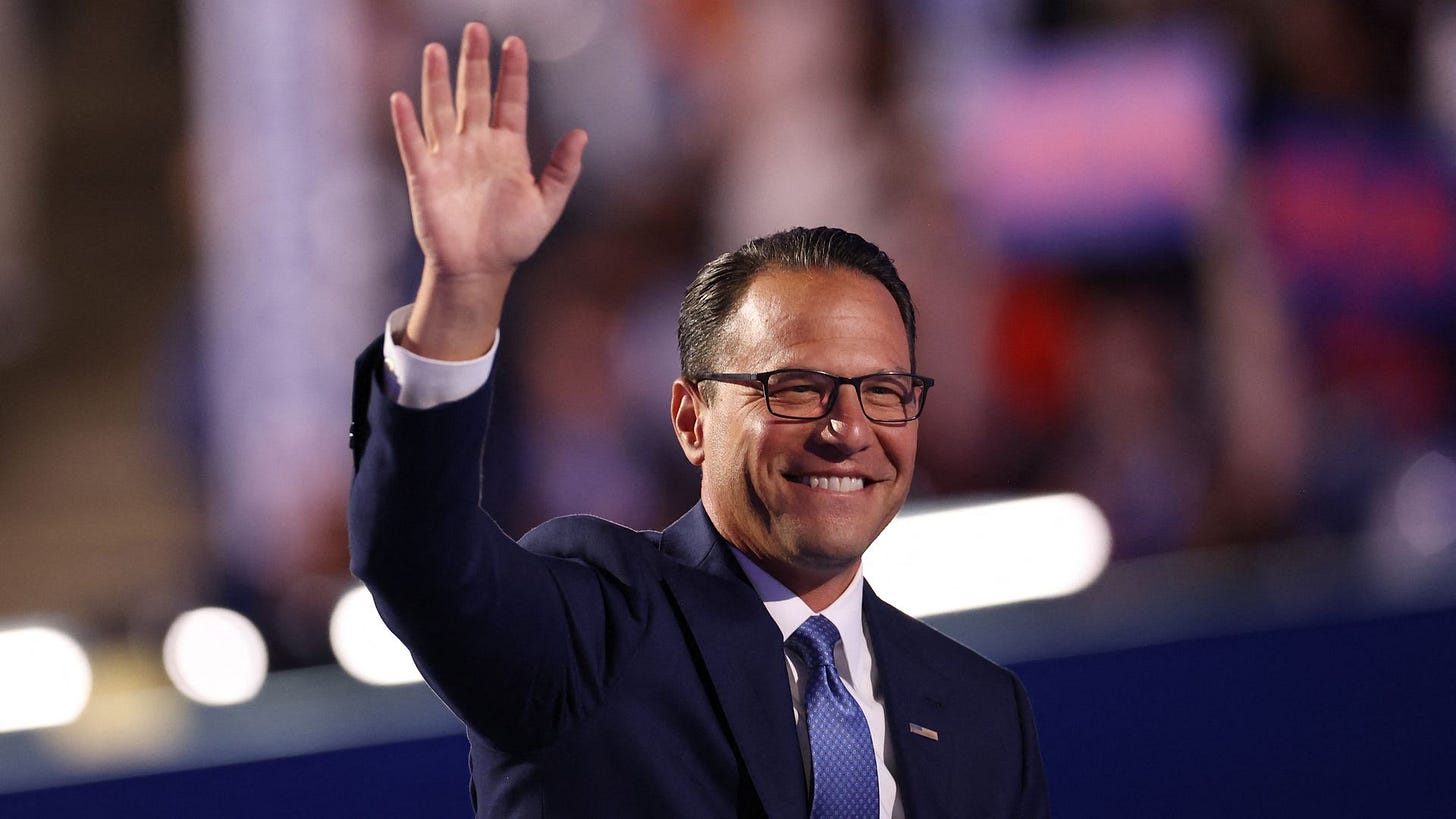
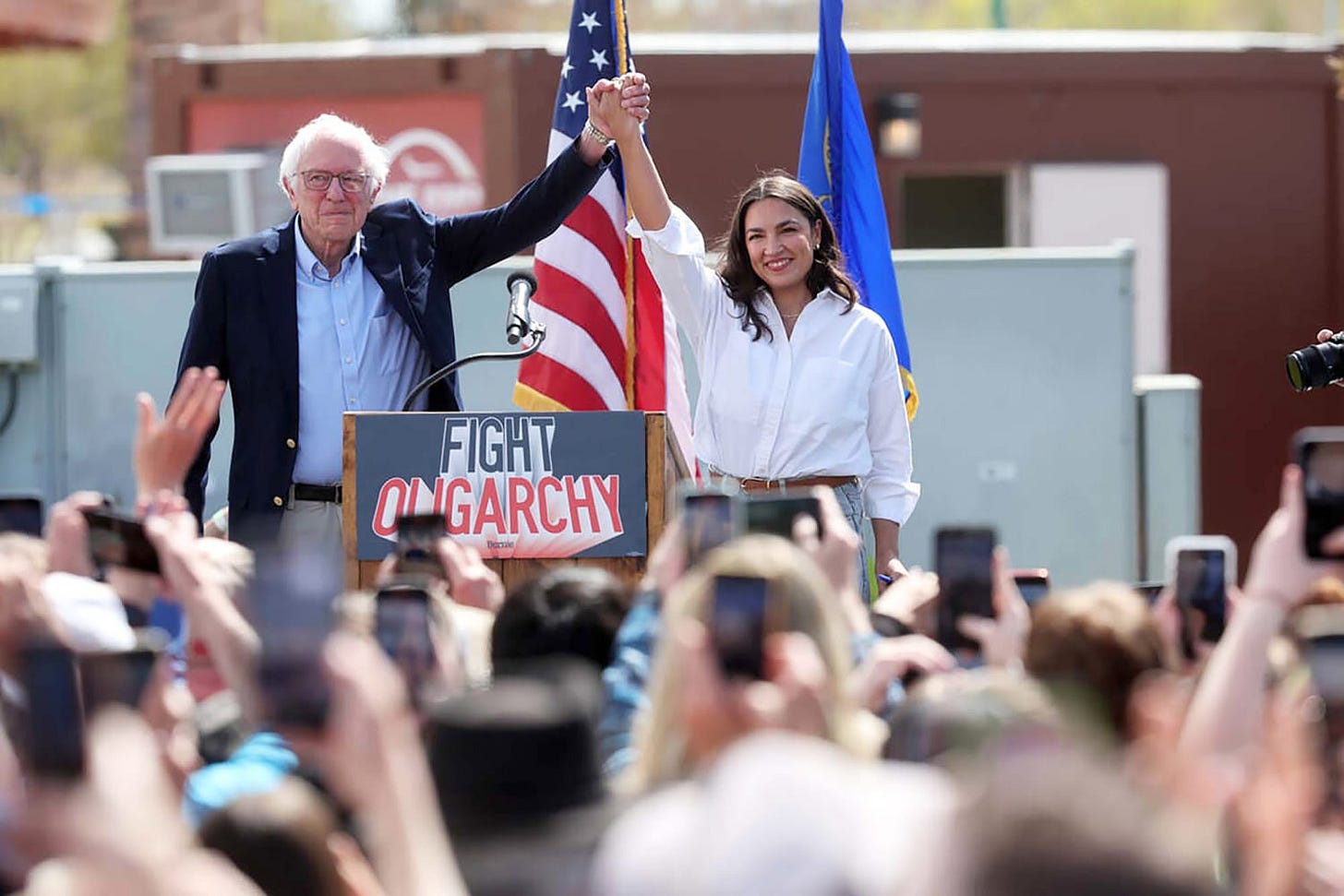


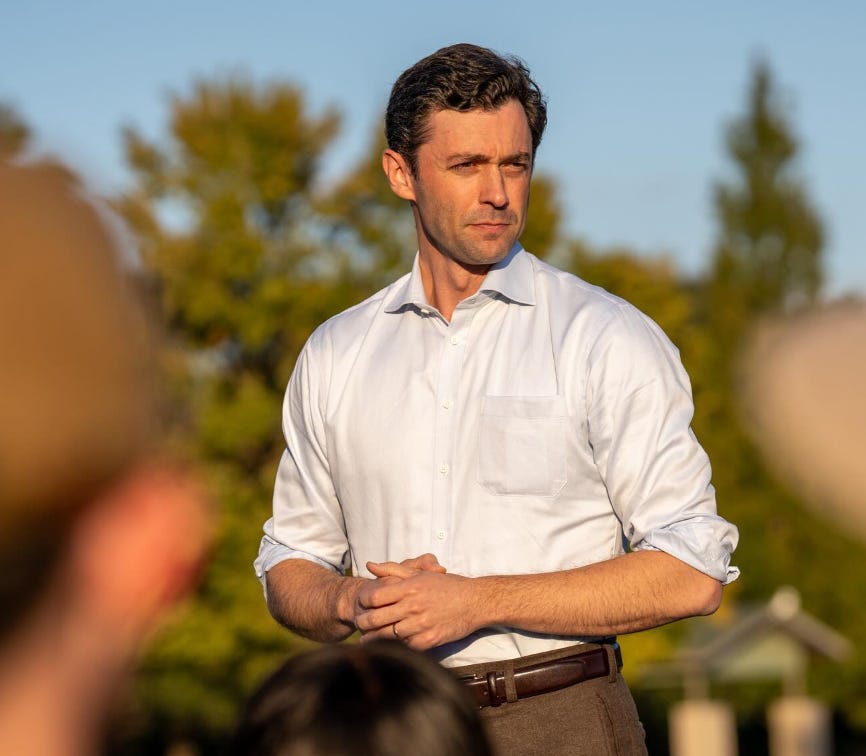
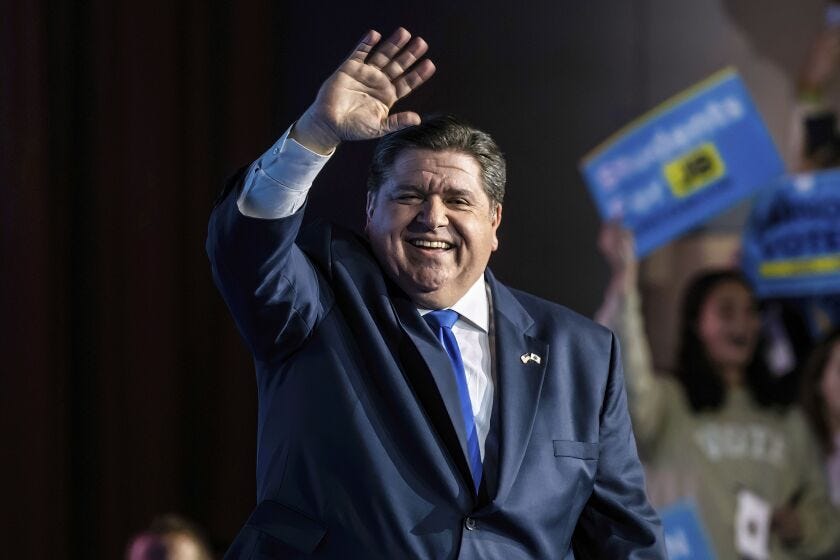
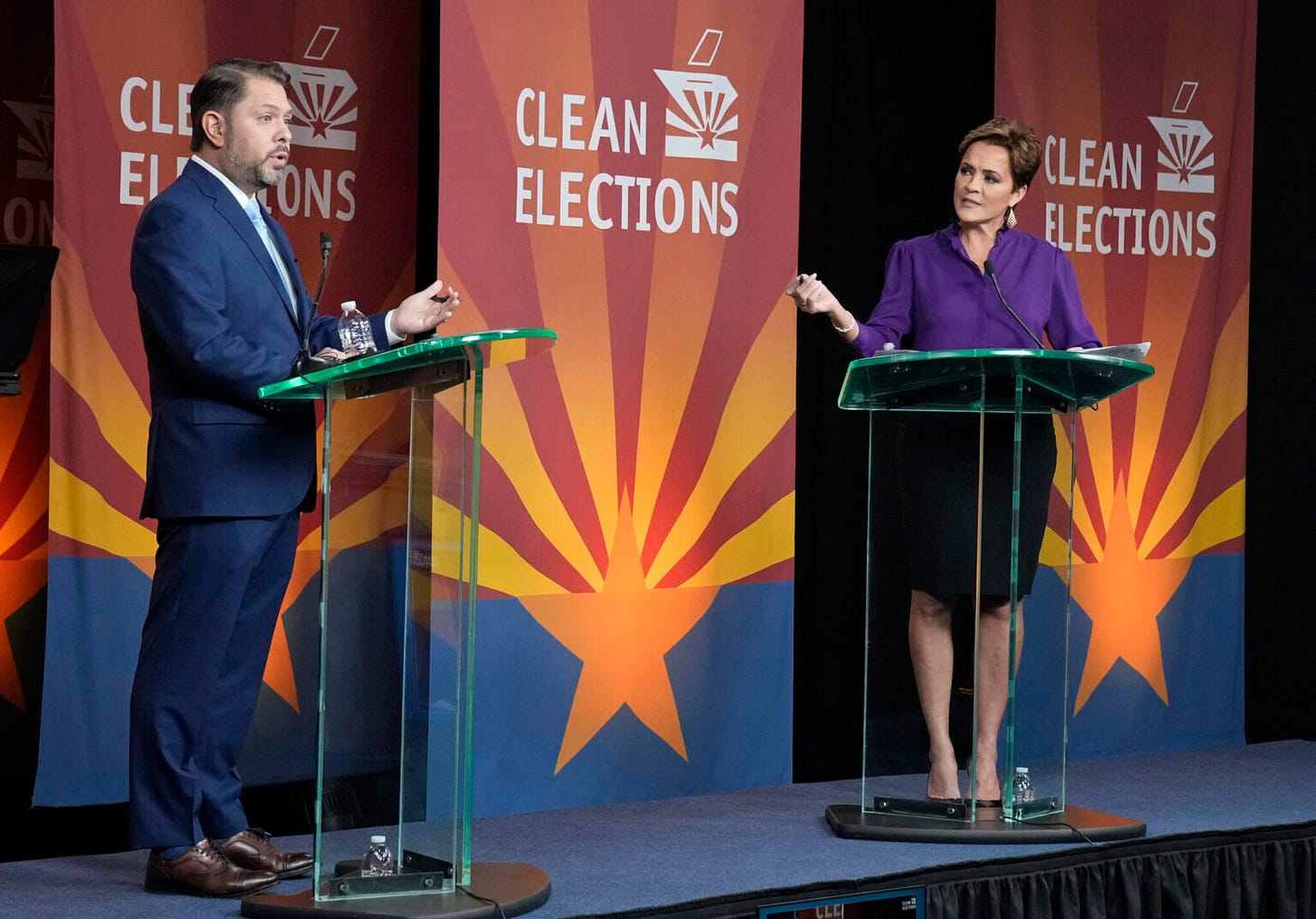
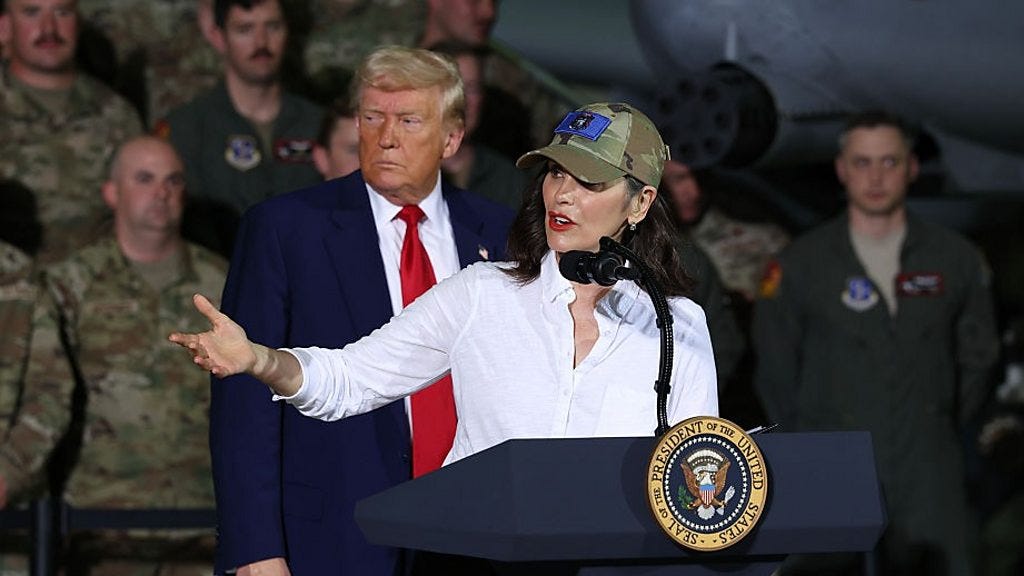
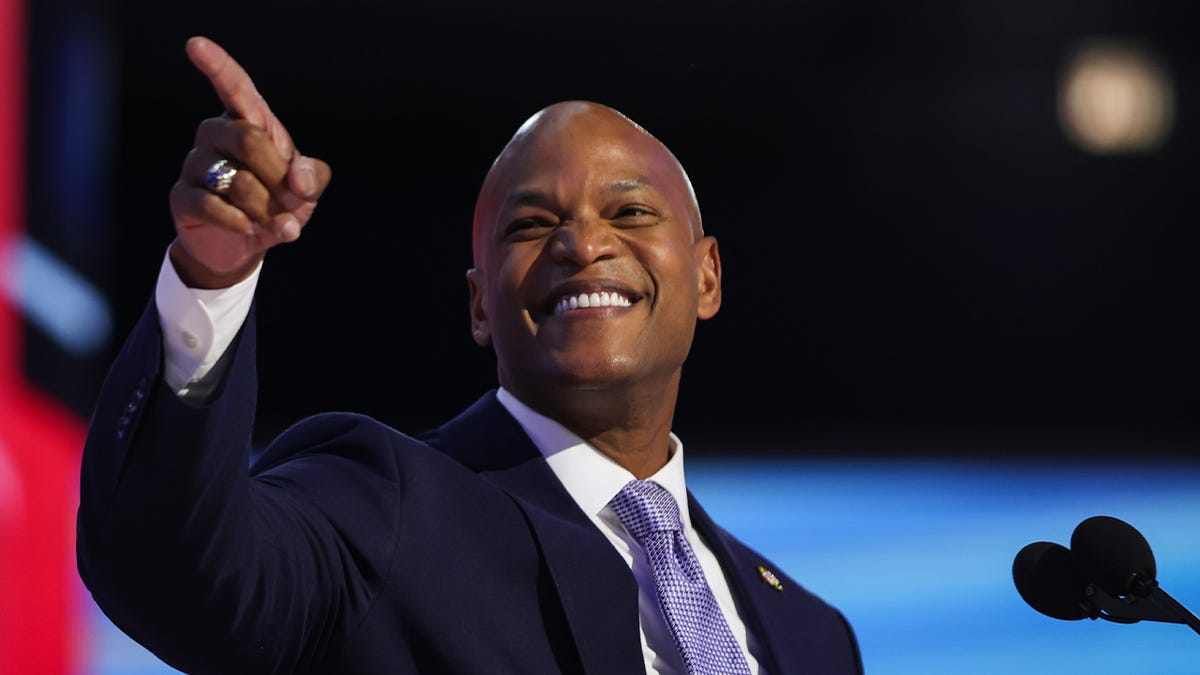

Wow, way off
Always a great analysis, Russ. Do you think whoever is really interested needs to wait until after the midterms in order to avoid getting trashed talked by Trump?